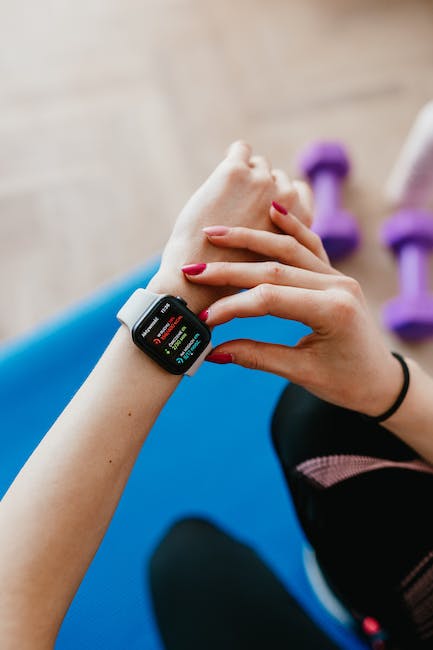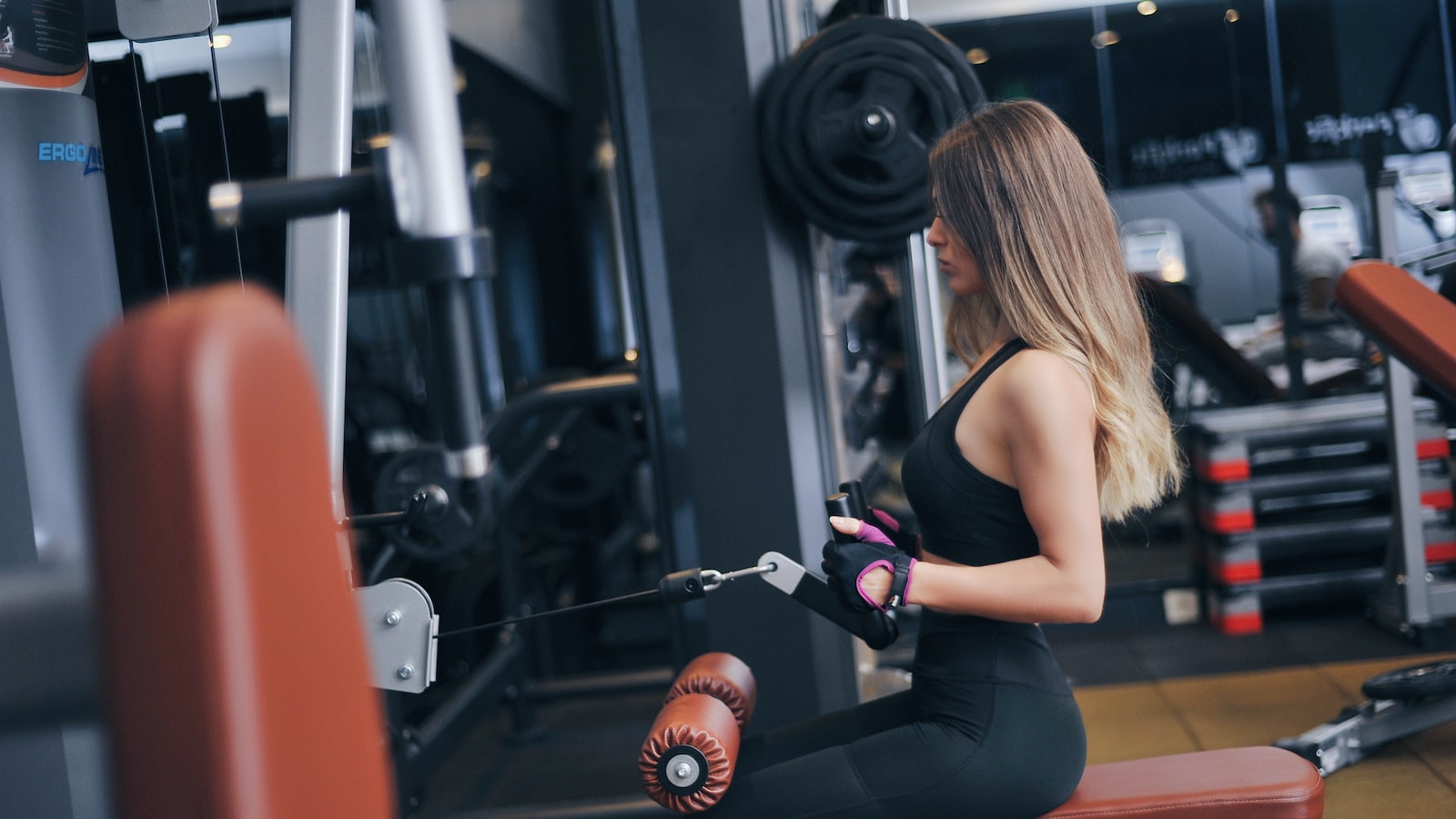Fitness Trackers and Heart Rate: Fact or Fiction?
Are fitness trackers and heart rate monitors all they’re cracked up to be? It seems like every fitness enthusiast has their eyes on the newest trackers and wearable tech, but how much do they actually help? Do fitness trackers truly have the power to monitor and track your heart rate, or is it just a passing fitness fad? In this article, we’ll investigate the facts and fiction behind fitness trackers and heart rate monitoring. Read on to learn more!
List of Content
- 1. What is a Fitness Tracker?
- 2. Heart Rate Monitoring Basics
- 3. Benefits of Wearing a Fitness Tracker
- 4. How Accurate Are Fitness Trackers?
- 5. Potential Drawbacks of Wearable Trackers
- 6. Choosing the Right Heart Rate Tracker for You
- You Ask, I answer

1. What is a Fitness Tracker?
A fitness tracker (also known as a fitness band) is a wrist-worn device that allows you to track and monitor your fitness goals. It can keep track of your steps, the calories you burn, and your heart rate. It also helps measure your progress with preset goals, like completing a goal number of steps or calories burned.
Features of Fitness Trackers:
- Record your movement
- Calculate your distance and altitude
- Trace number of steps
- Count calories burned
- Monitor your sleep hours
- Heart rate monitor
Fitness trackers also come with a wide variety of other features, such as vibration alarms, waterproof designs, and reminders to stay active. Depending on the type of fitness tracker you buy, you may also be able to track your sleep, measure your stress levels, and keep records of your daily activities.
Fitness trackers are becoming increasingly popular, as they are now highly-affordable, reliable, and work with smartphones and other devices. With their various benefits, they are an excellent way to keep track of your health and fitness progress.

2. Heart Rate Monitoring Basics
Monitoring Your Heart Rate During Exercise
Knowing your heart rate during exercise is important in order for you to adjust your activities accordingly. Your heart rate can tell you when you are exercising too hard and when you are not pushing yourself enough. To monitor your heart rate during exercise, you’ll need a device such as a heart rate monitor (HRM).
A HRM typically consists of a chest strap that measures your heart rate by transmitting electrical signals via a transmitting device. The data is then sent to a display that you can view your heart rate on. You can adjust your exercise intensity according to the readings from your HRM.
Whenever you start a new exercise routine, be sure to invest in a HRM. Here are some tips for using a HRM:
- Wear it snugly—not too loose and not too tight
- Make sure the chest strap is positioned properly
- Check your readings every 10-15 minutes
- Set goals for your heart rate levels according to your goals and physical fitness level
By monitoring your heart rate with a HRM, you can effectively maximize your workouts and reach any fitness goal you set. It’s a great way to make sure you’re exercising at the right intensity.
3. Benefits of Wearing a Fitness Tracker
If you’re looking to make positive changes to your health, wearing a fitness tracker can help to keep you motivated and on track with all your goals. Here are three key benefits of using a fitness tracker.
Stay Motivated
One of the most important is that it can help you to stay motivated over the long term. Because it keeps track of your workouts, you can easily see the progress you’re making over time. Plus, if you’re aiming for a certain goal, it can help you to stay on track and keep pushing forward.
Accurate Measurement
Another benefit of having a fitness tracker is that it can provide you with accurate, real-time feedback of how much progress you’re making. For example, a fitness tracker can track the number of steps you take, the calories you burn, the length and intensity of your workouts, and so on. This information can be invaluable in helping you to make adjustments to your routine and get even better results.
Personalized Program
Fitness trackers can also be used to create a personalized program that works for you — one that includes the type of exercise that you like doing, the intensity level that you can handle, and the amount of time you need to devote to it. Plus, some fitness trackers can even help you to set reminders to stay on track and get enough rest in between workouts.
Health and Wellness
Finally, by using a fitness tracker you can learn more about your overall health and wellness. This information can help you understand how different behaviors are impacting your day-to-day health. For instance, by monitoring your heart rate, a fitness tracker can help you to spot if you’re pushing yourself too hard and to make adjustments accordingly.
4. How Accurate Are Fitness Trackers?
Fitness trackers have become increasingly popular recently, with a wide range of features – from counting steps to monitoring sleeping patterns. But just how accurate are they when it comes to tracking your health and fitness?
The accuracy of fitness trackers will vary depending on the type and features of the device you use, so it’s important to do your research and compare various models to see which one would be the best fit for you. Before you decide, make sure to read reviews and talk to other people who have experience with the type of tracker you’re considering.
In general, fitness trackers should give you an accurate indication of your health and fitness but, as with anything, they can be prone to error. For example, when tracking activity, you might find that some trackers record extra steps or incorrectly count your calories burned. If you’re relying on a fitness tracker for your health and fitness goals, this can be detrimental to your progress.
Ways to Improve Accuracy of your Fitness Tracker
- Choose the right tracker for your needs – consider features such as GPS and heart rate monitor, as well as the accuracy of these features
- Update firmware regularly
- Calibrate your device to ensure accurate readings
- Check and double-check results for accuracy regularly
At the end of the day, it’s important to remember that fitness trackers are tools to measure activity and changes in your health and fitness and, while they can be helpful, they should not be seen as an infallible measure.
5. Potential Drawbacks of Wearable Trackers
Precision & Reliability Issues
Wearable trackers, like most technology devices, are not 100% precise and reliable in terms of data accuracy. This can result in inaccurate health and fitness data, leading users to make decisions they may not otherwise have made if they relied on reliable information.
Privacy Concerns
Another potential drawback of wearable trackers is the privacy concern associated with the devices. They may collect the user’s personal data, such as location or physiologist information, and then send it to third parties who can use this data. Such data may be used for commercial purposes, such as targeted marketing campaigns.
Battery Life & Maintenance
Wearable trackers require regular charging or may need to be replaced if the charge cannot be maintained. The battery life of most trackers is quite short, lasting for only a few days on a single charge. Users should be aware of this potential drawback and plan accordingly.
Price
Wearable trackers can be quite costly, with some models costing hundreds of dollars. Thus, if a user is looking to purchase a tracker, they should be aware of the cost associated with the device, and may want to shop around for the best deals. Additionally, some of the more advanced trackers may require additional purchases of accessories or services in order to fully benefit from the device.
6. Choosing the Right Heart Rate Tracker for You
Heart rate trackers are a popular way to monitor and stay on top of your body’s fitness and health. But with so many different options out there, it can be hard to decide which one is right for you. Here are some tips for making the right pick.
- Look for features you need: Some HR trackers are mostly for tracking the number of steps taken, or monitoring a resting heart rate; while others offer detailed analysis of workouts, stress levels, sleep patterns, and more. Before buying, make sure you go through the features offered and decide which ones are important to you.
- Style: For many, the look is just as important as the features. Look for a device that is comfortable and stylish that fits with your lifestyle. Native designs like watches and clips offer a more discreet form factor, while fitness bands with simple displays have become popular.
- Water resistance: If you plan on using the device to track your swimming, make sure to keep an eye out for water resistance. Many fitness trackers come optimised for swimming, with perks like in-depth logs and route tracking.
- App compatibility: Different trackers come with different apps. Make sure that the HR tracker you choose can connect to the app of your choice, or else the device won’t be of much use.
Once you’ve looked through all the features and decided on the type of device you’re looking for, go online and do some research. Check out customer reviews, compare different brands and pricing, and find the one that suits you best.
It also helps to talk to friends and family who are using a heart rate tracker. They have first-hand experience with the device and can offer advice and feedback on what works best.
You Ask, I answer
Q: What is a fitness tracker?
A: A fitness tracker is a type of wearable technology that tracks your activity and records data like heart rate, calorie expenditure, and sleep patterns.
Q: Do fitness trackers measure heart rate accurately?
A: It depends. Fitness trackers that use photoplethysmograph (PPG) sensors are typically the most accurate. These usually provide continuous monitoring and can measure both resting and active heart rates.
Q: How do fitness trackers measure heart rate?
A: They often use a combination of sensors and algorithms to measure your heart rate. For example, optical sensors detect changes in your blood flow and then algorithms interpret these signals to calculate your heart rate.
Q: Are fitness trackers a reliable source of health and fitness data?
A: It really depends on what fitness tracker you use and how accurate its sensors are. In general, though, they are useful for tracking changes in your activity, heart rate, and calorie expenditure over time.
It’s clear that fitness trackers are gaining an increased presence in the fitness technology world. As more and more research and testing is done, it allows fitness enthusiast to evaluate the accuracy in their readings and weigh the pros and cons of these devices. All in all, fitness trackers have the potential to be a helpful tool in your fitness journey. Just remember to stay mindful of the data they provide and take it with a grain of salt.


